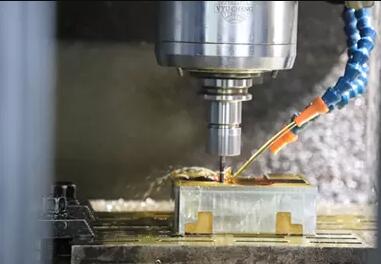Nov. 02, 2023
Mechanical Parts
CNC machining has revolutionized the manufacturing industry, offering precision, versatility, and efficiency. While CNC machines are commonly used for machining metals and other materials, they are also capable of machining plastics. In this article, we will explore the feasibility of CNC machining plastic, its advantages, challenges, and the types of plastics that are suitable for CNC machining.
CNC Machining and Plastics
Computer Numerical Control (CNC) machining involves the use of computer-aided design (CAD) and computer-aided manufacturing (CAM) software to control the movement of cutting tools and create precise parts from a solid material. CNC machines are known for their ability to produce complex, highly accurate components, making them an indispensable tool in various industries. While metals are commonly machined using CNC, plastics are also excellent candidates for this process.
Advantages of CNC Machining Plastic
Precision: CNC machining offers exceptional precision when working with plastics. This accuracy is vital in industries such as aerospace and medical, where tight tolerances are required for components.
Versatility: CNC machines are versatile and can create a wide range of shapes and geometries, making them suitable for complex plastic parts.
Cost-Effective: CNC machining can be a cost-effective method for producing plastic parts in low to medium quantities, as it eliminates the need for expensive molds or tooling.
Quick Turnaround: CNC machining offers relatively quick turnaround times, allowing for rapid prototyping and production.
Material Options: There is a wide variety of plastic materials available for CNC machining, offering different properties, such as strength, flexibility, and resistance to chemicals and heat.
Challenges of CNC Machining Plastic
While CNC machining plastic has its advantages, there are also some challenges to consider:
Heat Generation: Plastics are more prone to heat generation during machining, which can lead to melting or warping. Proper tool selection, cooling methods, and machining parameters are essential to mitigate this issue.
Chip Control: Unlike metals that produce chips during machining, plastics tend to create stringy, sticky chips that can affect the machining process. Effective chip control methods are necessary.
Material Selection: Not all plastics are suitable for CNC machining. The choice of plastic material depends on the specific application and the properties required, such as mechanical strength, chemical resistance, or thermal stability.

Tool Selection: Selecting the right cutting tools is crucial when machining plastics. Tools with sharp edges and minimal friction are preferred to prevent melting or burring.
Suitable Plastics for CNC Machining
Several plastics are commonly used for CNC machining, each with its own characteristics and applications:
Acrylic (PMMA): Acrylic is a popular choice for CNC machining due to its transparency, ease of machining, and wide range of colors. It is often used for prototyping, signage, and decorative components.
Delrin (POM): Delrin is a high-performance engineering plastic known for its excellent dimensional stability and low friction properties. It is commonly used in applications where low friction and wear resistance are essential.
Nylon: Nylon is a versatile plastic with good mechanical properties, making it suitable for various applications, including gears, bearings, and structural components.
Polycarbonate (PC): Polycarbonate is known for its impact resistance and optical clarity, making it suitable for applications requiring toughness and transparency, such as protective shields and lenses.
Polyethylene (PE): Polyethylene is a low-cost plastic with good chemical resistance, often used for components that come into contact with chemicals or food, like tanks and containers.
Conclusion
CNC machining plastic is a viable and advantageous manufacturing process. Its precision, versatility, and cost-effectiveness make it a valuable option for producing plastic parts across various industries. While there are challenges to consider, such as heat generation and chip control, these can be managed with proper tooling, machining parameters, and material selection. When choosing plastics for CNC machining, it is crucial to consider the specific requirements of the application and select a material that best suits those needs. With the right approach, CNC machining service can yield high-quality plastic components that meet the stringent demands of modern manufacturing.
Previous: What are the application fuilds of rapid prototyping process?
Next: What are the benefits of Flat Wire Compression Springs?
If you are interested in sending in a Guest Blogger Submission,welcome to write for us!
All Comments ( 0 )